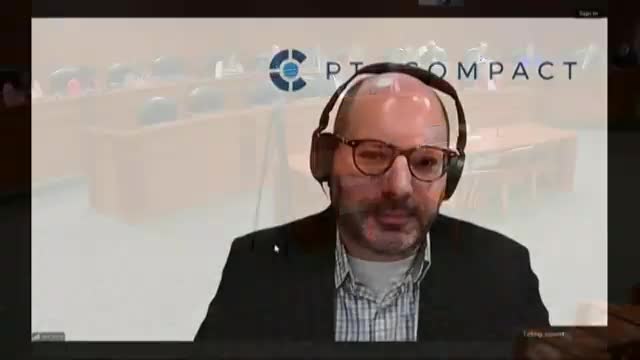Committee hears bills to join occupational‑therapy licensure compact to expand access
Get AI-powered insights, summaries, and transcripts
Subscribe
Summary
Lansing — The House Health Policy Committee heard testimony on House Bills 4103 and 4104, which would authorize Michigan to join the Occupational Therapy Licensure Compact and set implementing requirements.
Lansing — The House Health Policy Committee heard testimony on House Bills 4103 and 4104, which would authorize Michigan to join the Occupational Therapy Licensure Compact and set implementing requirements.
Sponsors and occupational therapy advocates said the compact would increase access to occupational therapy services in rural and underserved communities, reduce long waiting lists for specialty care and support telepractice. Representative Rogers, sponsor of House Bill 4103, said the compact reauthorization had passed the House overwhelmingly in a prior session and would align Michigan with neighboring states that have already joined.
Denise Hoffman, legislative and advocacy director for the Michigan Occupational Therapy Association and a board‑certified occupational therapist, told the committee that rural families sometimes wait months for pediatric feeding specialists and other OT subspecialists. “There are examples of infants and children with feeding conditions who go home from the hospital and then face up to eight months’ waiting period to get a qualified occupational therapist in rural areas,” she said.
Witnesses emphasized that the compact preserves each member state’s regulatory authority and scope of practice, while creating an alternate pathway for licensure privileges that facilitates telehealth and workforce mobility. Dan Logsdon of the Council of State Governments’ National Center for Interstate Compacts was available by video and said his office advises states on compact design and implementation.
Committee members questioned jurisprudence and continuing‑education requirements. Representatives were told jurisdictions use a variety of approaches (for example, Ohio’s compact implementation uses a short, state‑specific acknowledgement in some cases rather than a full jurisprudence examination) and that detailed implementation language can be standardized in rules or administrative guidance.
Several education programs, hospitals and professional associations submitted cards in support. No committee vote was taken at the hearing.
